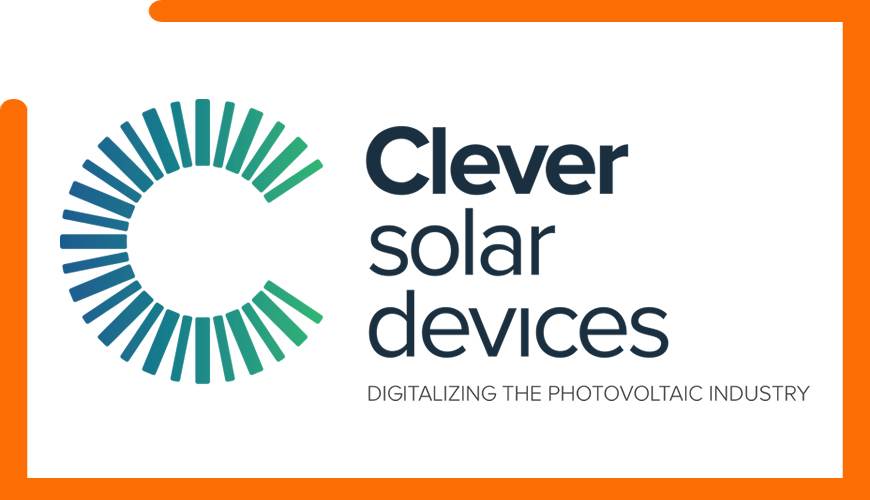The Whistleblower of Photovoltaic Failures

16.10.2024
Photovoltaic Solar Energy: Growth and Technological Innovations
Photovoltaic solar energy is the technology that has experienced the most growth in Spain over the past year, with an increase of around 30% in installed capacity.
All these installations, whether placed in solar plants or in homes for self-consumption, require regular maintenance and monitoring to ensure the efficiency of this clean energy technology for power generation.
Conventional maintenance, where the technician travels from one plant to another to check or repair the photovoltaic modules, is starting to become outdated and will be less operational for companies.
Digitalization to help locate faults is becoming essential in these tasks, in a sector that is evolving and growing rapidly, aligned with renewable energy production, which is a commitment to replace fossil fuels.
In this context, the Soria-based startup Clever Solar Devices has developed a mobile application designed to meet the needs of solar panel technicians in addressing deficiencies.
This innovation simplifies maintenance tasks so that technical staff can carry the information they need about each installation in their pocket, including alerts when something is failing, like a “whistleblower” for issues.
This tool is part of the company’s technological evolution, where artificial intelligence has been introduced to monitor the plants and detect faults. The mobile application that alerts technicians to these faults is the final piece of this chain.
Bhishma Hernández, electronic engineer and head of Clever, explains: “Photovoltaics seem highly evolved, but I believe we are still in the early stages.” He adds, “In wind energy, there are sensors to measure everything, but in photovoltaics, we only have the inverter as a point of information, while the panels, which are the ones capturing the energy, are the big forgotten ones.”
Clever started its journey in this sector by creating a device that automated the real-time detection of faults in photovoltaic installations through the monitoring of the current-voltage curve of the panels.
After completing a pilot project for an energy company, Clever decided to enhance its platform by incorporating artificial intelligence and machine learning. This allows for simpler interpretation of data collected about panel performance, making it easier to provide a more accurate diagnosis.
The incorporated algorithms respond to specific patterns, such as broken panels, panels with oxidized cells, disconnected panels, or panels with shadows, among others. These allow the system to generate alerts in a central computer, which can be accessed via the internet.
This patented system by Clever generates information that can feed mobile applications, prompting the company to develop a tool of this nature for the management of technicians responsible for maintaining solar panels.
The system functions like a messaging tool that sends alerts when it detects a fault or anomaly that needs attention, such as decreased efficiency or degradation issues in the panels. “This tool changes the day-to-day work of maintenance technicians,” explains Bhishma.
Clever’s previous technological developments already provided production data from the plants, but this alone did not help with diagnostics. “Now, they will have more precise information on what is happening, and technicians will receive a warning,” he adds.
Each technician usually handles the maintenance of between 30 and 40 plants, meaning they have to travel to the installations once a year for review tasks.
With Clever’s tool, this is no longer necessary, Bhishma states, as the information about the installations’ diagnosis is available in advance, “so priority can be given to some over others in case an intervention is needed,” says the startup leader, who describes the progress of the company’s control panel as a “technological revolution.”
It is designed to handle large portfolios of photovoltaic installations with agility and increased analytical capacity. In addition to facilitating decision-making, it also optimizes an operational strategy.
“There are large-capacity installations in gigawatts, but the problem for maintenance is also multiplied because more and more homes are installing panels. In this case, energy efficiency must be guaranteed, but to do so, faults need to be located, and this is where digitalization helps.”
The Soria-based company Clever has been working for years on the digitalization of photovoltaic solar systems, where “artificial intelligence is the starting gun, and the next steps involve exploiting information not only in the present but also looking to the future,” clarifies the expert. He highlights that one of the primary objectives of these installations is energy efficiency to achieve the maximum production capacity.
Bhishma Hernández suggests the possibility of developing new features to continue growing, such as introducing a digital twin, which would allow technicians to chat and receive guidance and recommendations for the necessary repairs.
Clever is a startup certified by the National Innovation Company (Enisa), an organization that supports small companies driving innovative entrepreneurship projects.
